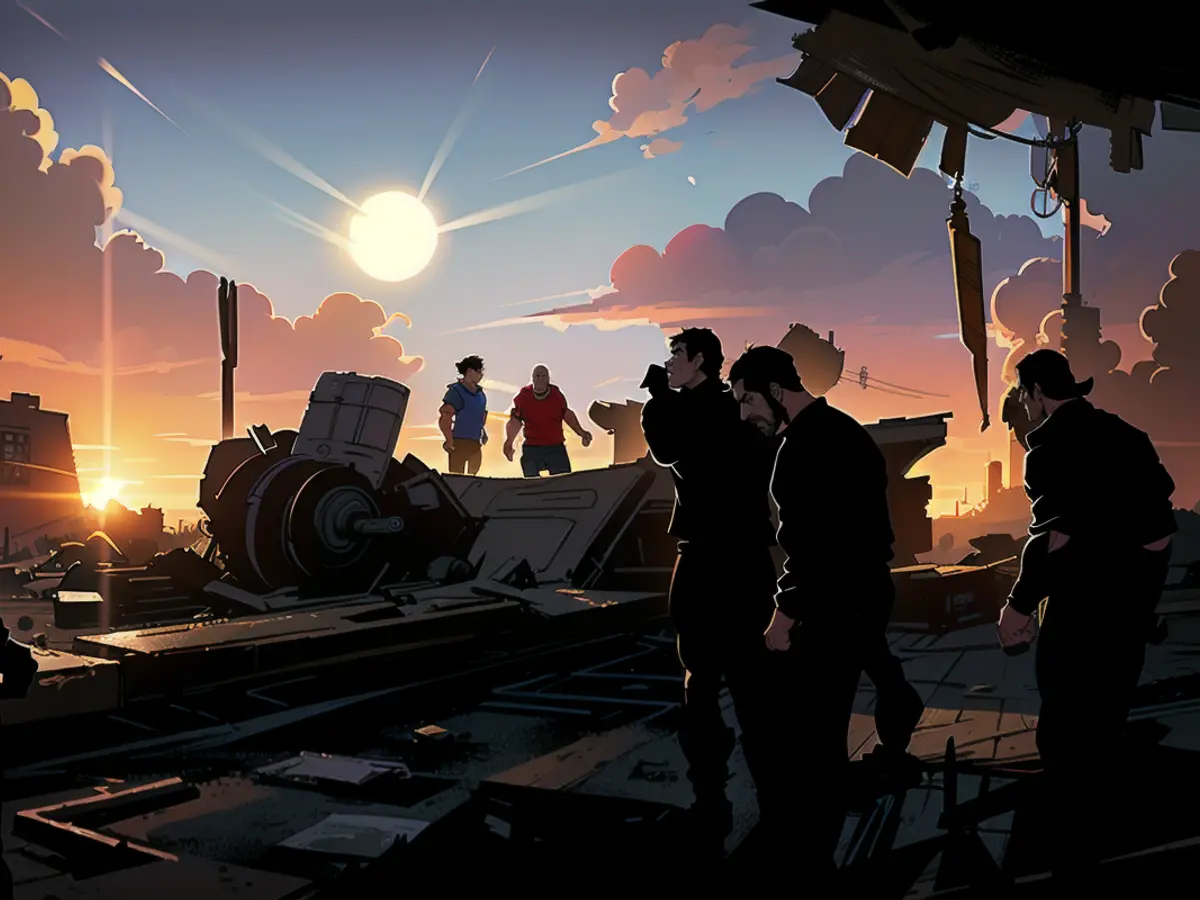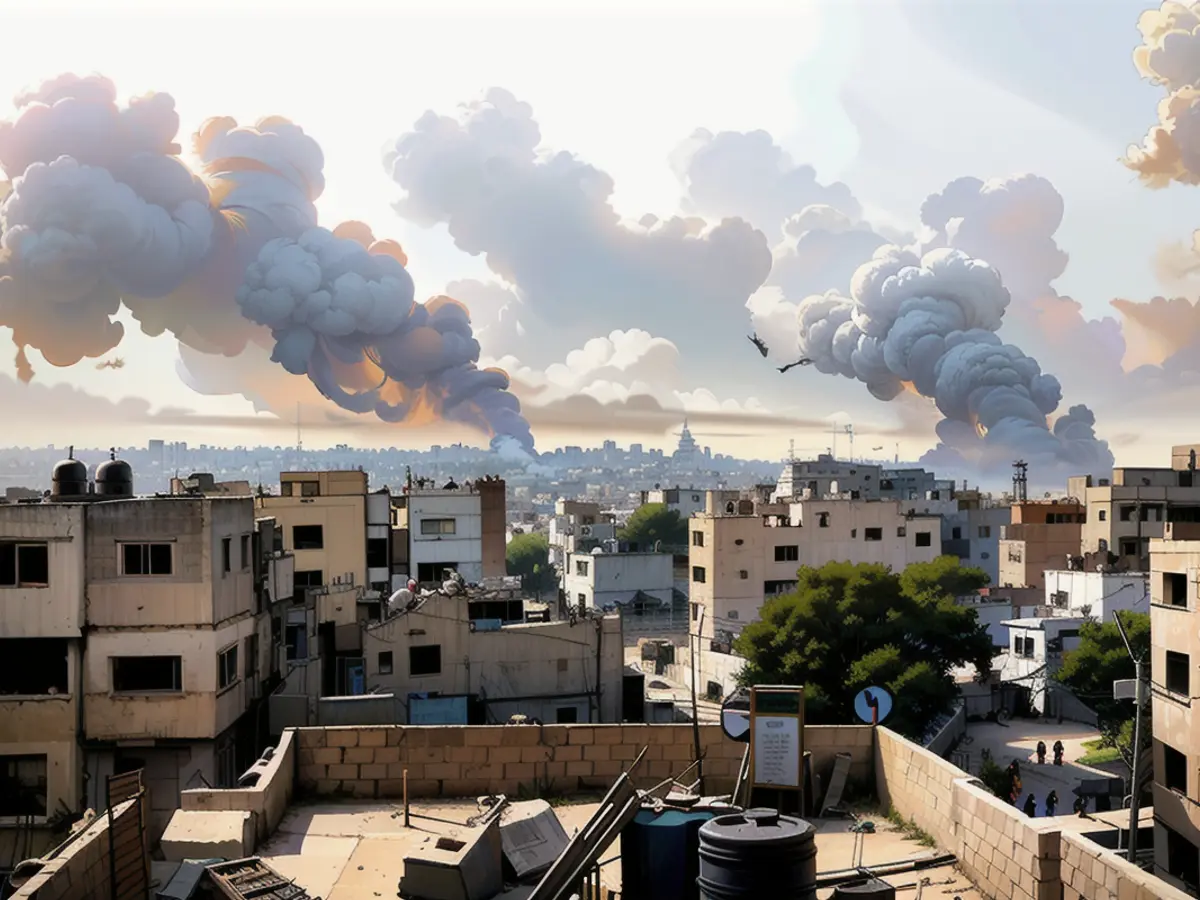Tanks from Israel move forward into Rafah, disregarding global pleas for a ceasefire.
Two days after an Israeli strike on a Gaza camp took the lives of several displaced Palestinians, Israeli tanks were spotted in the Al Awda roundabout in Rafah, a city in southern Gaza. This occurred amid international calls to halt Israel's assault on the city.
Alaa Abu Ibrahim, a Rafah resident, reported witnessing tanks at the city's center, and Salma AlKadoomi noticed armored vehicles in the downtown area near the Abu Hashem building. "These vehicles moved in the middle of the night," AlKadoomi said.
Rear Admiral Daniel Hagari, an IDF spokesman, addressed this issue at a media briefing, stating that the military was operating in Rafah in a "targeted" and "precise" manner. "Hamas battalions are still present in Rafah. A couple of days ago, launchers from Rafah fired rockets to Tel Aviv, causing people to seek refuge in bomb shelters," he noted.
Israel initiated a limited ground operation in Rafah on May 7, crossing the Philadelphi Corridor, a 14-kilometer (8.7-mile) long border buffer zone between Egypt and Gaza, and seizing the Palestinian side of the border with Egypt.
Hagari added that the IDF had detected tunnels along the Philadelphi Corridor and that these tunnels led to Sinai. He also mentioned that the military was demolishing the Sinai-bound tunnels and communicating with the Egyptian government about the matter.
Egypt strongly opposes this operation at its border, and tensions have escalated after an Egyptian security personnel was killed on the border with Gaza in a shooting involving both Egyptian and Israeli soldiers. Reports suggest that members of "Palestinian resistance" forces were involved in the incident.
Before Israel began its operation in Rafah, approximately 1.3 million Palestinians were seeking refuge there. However, around 1 million have since fled, according to UN figures.
The Biden administration has cautioned against a large-scale ground invasion in Rafah, insisting on the safety of civilians. President Joe Biden hinted that he would halt US weapons deliveries to Israel if a major invasion of Rafah was launched.
Jake Sullivan, US national security adviser, observed an alteration in Israel's plan, which he described as "more targeted and limited" in scale.
Israel's deadly strike on a camp housing Palestinians in Rafah on Sunday killed 45 and injured 200, sparking a global outcry. Israeli Prime Minister Benjamin Netanyahu later admitted that the civilian casualties were "a tragic error."
Israel's military has since launched an investigation into the incident, and on Tuesday, the IDF declared that their weaponry could not have single-handedly caused the massive fire. "Munitions alone could not have ignited such a large fire. We are examining all possibilities, including the possibility that the weapons stored in a compound beside our target may have ignited because of this attack," Hagari said.
He also displayed footage of a strike on a structure, claiming that it housed senior Hamas commanders. The military used two munitions with 17-kilogram (37 lbs) warheads for the strike, as indicated by Hagari.
"We are making efforts to ascertain the cause of the fire, but it is still unknown. Finding the cause of this fire will not make the situation less tragic," he added.
Israel's offensive in Rafah continued, even after the International Court of Justice (ICJ) demanded that Israel "immediately halt" its military action there. The UN and some of Israel's European allies have urged Israel to obey the ICJ's order, emphasizing its binding nature.


Read also:
- This will change in December
- Dikes withstand water masses so far - Scholz holds out the prospect of help
- Fireworks and parties ring in 2024 - turn of the year overshadowed by conflicts
- Attacks on ships in the Red Sea: shipping companies avoid important trade route
In response to the international calls for a ceasefire, Israeli tanks continued their advance in the Middle East, specifically in Rafah, causing concerns for the stability of the region and the world at large. The United Nations and several European countries have urged Israel to abide by the International Court of Justice's demand to halt its military operation in Rafah, emphasizing its binding nature.
Source: edition.cnn.com







